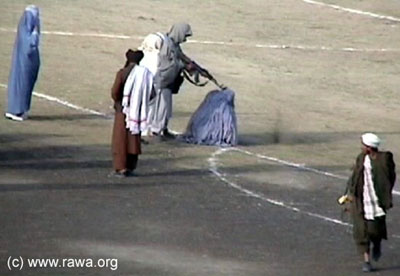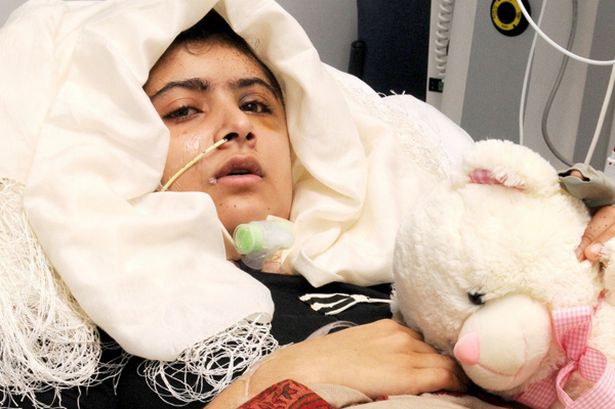
A tweet by Maleeha Lodhi caught my attention today as it hinted at the type of story that makes any sane person despair: Military ordering the killing of children as an act of war.
haunted by his past. Bryant: Drone operator followed orders to shoot a child… and decided he had to quit http://t.co/xTi95MeYzu
— Maleeha Lodhi (@LodhiMaleeha) October 25, 2013
This story includes themes that press on many of our greatest emotions, doesn’t it? The foreign monsters who hold our lives in so little value that they systematically target and murder our own children to advance their imperialist agenda, and the troubled conscience that opens someone’s eyes to the evil committed by their own hands, driving them to regret and despair.
Then I actually read the story and was surprised to find something very different.
As the countdown reached seven seconds, there was no sign of anyone on the ground.
Bryant could still have diverted the missile at that point.
But when it was down to three seconds, a child suddenly walked around the corner.
The next thing he saw was a flash on the screen – the explosion. The building collapsed, and the child disappeared.
Bryant had a sick feeling in his stomach, he told the website.
‘Did we just kill a kid?’ he asked the pilot next to him.
‘Yeah, I guess that was a kid,’ the man replied.
This was puzzling to me. Unlike the claim in Maleeha Lodhi’s Tweet and the story’s headline itself, the drone operator was not ordered to kill a child. What he said was that the child walked into the area when it was too late to change the direction. After seeing the child killed, the drone operator felt sick. Even though it was unintentional, his conscience was so troubled by the event that he could not go on in his job.
My mind was next drawn to another recent event, when Taliban militants who hold our lives in so little value that they systematically target and murder our own children to advance their agenda shot a child in the head.
On Tuesday, masked Taliban gunmen answered Ms. Yousafzai’s courage with bullets, singling out the 14-year-old on a bus filled with terrified schoolchildren, then shooting her in the head and neck. Two other girls were also wounded in the attack. All three survived, but late on Tuesday doctors said that Ms. Yousafzai was in critical condition at a hospital in Peshawar, with a bullet possibly lodged close to her brain.

Unlike the story of the drone operator, there was no mistake in this case. Malala Yousafzai did not wander into danger – she was specifically targeted. And this horrific act did not result in troubled consciences and regret. The Taliban did declare that they could not live with their actions, having failed to kill her the first time, they promised to continue until they succeeded.
Maleeha Lodhi can be excused somewhat since the British newspaper she quoted had itself misrepresented the facts so badly. Excused somewhat, but not completely. We should, after all, expect more critical reading from those of her stature and influence.
Most likely, however, Maleeha Lodhi was probably like many of us, a victim of our own desire to see what we want to see – a world in which the monsters are the foreign invaders and we are merely innocent victims. But trying to deflect our attention away from our own failings, our own responsibility, never fully soothes our conscience.
None of this justifies drone strikes, but it should be a reminder that for all the arguments against drones, there is a greater evil that walks among us. And even as we wrap ourselves in the anti-drone narrative, our conscience weighs on our hearts because deep inside we know the truth and are troubled by it. This is good – it means our conscience is still our guide. But we must listen to that guide before our narratives smother it completely. For when we can no longer hear our conscience, that is when we will have become the very monsters we feared.
![]()





